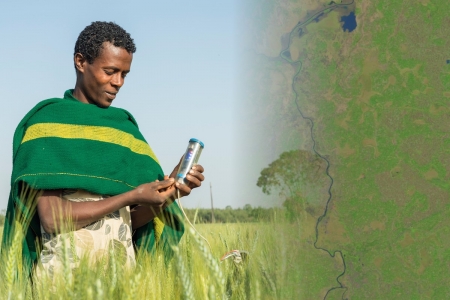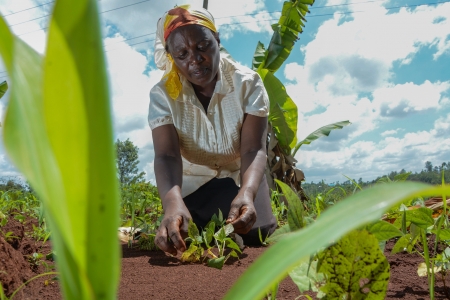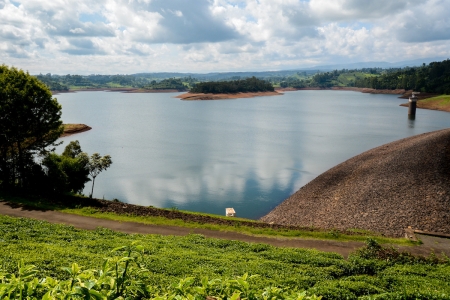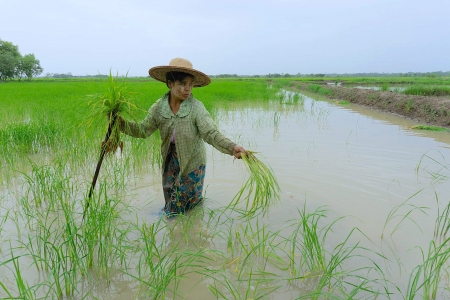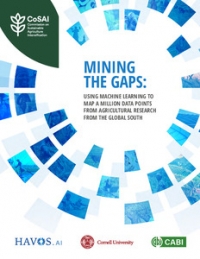There is no food security without biodiversity. This is the simple message for which the CGIAR Research Program on Water, Land and Ecosystems (WLE) and partners have gained traction through years of research. And now it's being mainstreamed through a major assessment that is set to influence the next decade of global policy.
"Our research [shows] that agriculture does not have to be diametrically opposed to ecological health and natural habitats for biodiversity. Rather, agriculture is completely necessary for environmental and human health," said Fabrice DeClerk of The Alliance of Bioversity International and CIAT. "Protecting biodiversity and using biodiversity in agriculture is the foundation for enhancing the benefits for people and the environment simultaneously, making conservation and agricultural productivity allies with shared ambition."
These messages, strengthened through years of WLE research, have rung true to the Intergovernmental Science-Policy Platform on Biodiversity and Ecosystem Services (IPBES). IPBES is the central international body facilitating a strong science--policy interface on ecosystem services. In May 2019, governments from the 134 countries that make up IPBES announced that the first IPBES nexus assessment would focus on biodiversity, food, health and water, drawing heavily on a proposal submitted by WLE and partners.
This assessment is identifying nature-based solutions that integrate agriculture and biodiversity to support both human health and environmental sustainability. To be published in 2022, this work is expected to be groundbreaking.
Key to its anticipated influence is development of novel policies that support carbon capture, improved water quality, habitat and connectivity for biodiversity, and more. It is also expected to recognize those services that benefit agriculture, including dietary diversity, pollination, pest control and nutrient cycling in soils. In this way, WLE is pushing forward agricultural policy development for the next decade.
The focus on biodiversity, food, health and water has grown directly from WLE's long-term engagement with IPBESand continued research efforts. Already in 2014, WLE researchers produced a critical framework highlighting agriculture's dependencies on, and contributions to, nature. Re-published in the 2019 Global Food Policy Report by WLE partner the International Food Policy Research Institute (IFPRI), this framework demonstrates that restoring and improving the natural environment is a key component of rural revitalization. Indeed, it is essential not only to improve rural living conditions, but also to restoring the health of the planet.

